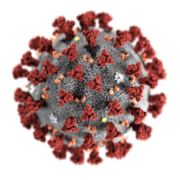
Research published this week by the Stress and Development Lab examines predictors of youth mental health during the COVID-19 pandemic, and identifies factors that families engage in that could help promote better mental health for children during the pandemic. We examined these questions in two longitudinal studies of children and adolescents in the Seattle area whose mental health had been assessed prior to the pandemic, so we could examine changes in mental health during the pandemic--both during the stay-at-home orders and approximately 6 months later. Given the constraints faced by many families with children, we examined a set of simple and practical strategies that families could engage in that are easily accessible, inexpensive, and require no specialized resources or services outside the home to help support mental health in their children. Mental health problems increased substantially during the pandemic in these samples. The rates of both internalizing problems like anxiety and depression and externalizing problems like aggression and oppositional behavior doubled relative to levels prior to the pandemic. Children and adolescents who who experienced more pandemic-related stressors, including health, financial, social, and school stressors, experienced greater increases in both internalizing and externalizing symptoms than youths who had lower exposure to pandemic-related stressors. Importantly, we identified a number of factors that helped to protect children against these increases in mental health problems during the pandemic. Children and adolescents who had a structured daily routine, engaged in less passive screen time, had lower exposure to news media about the pandemic, and to a lesser extent spent more time in nature and got adequate sleep each night were less likely to develop increased mental health problems during the pandemic. In other work not yet published, we have also found that children and adolescents who were able to maintain a sense of social connection to their peers during the pandemic were less likely to develop stress-related mental health problems.We hope these findings help families to identify simple strategies they can engage in to help protect again the emergence of mental health problems in children and adolescents during the pandemic.
You can read about these findings in PloS One, Seattle Times, Harvard Gazette, and Science Daily.
